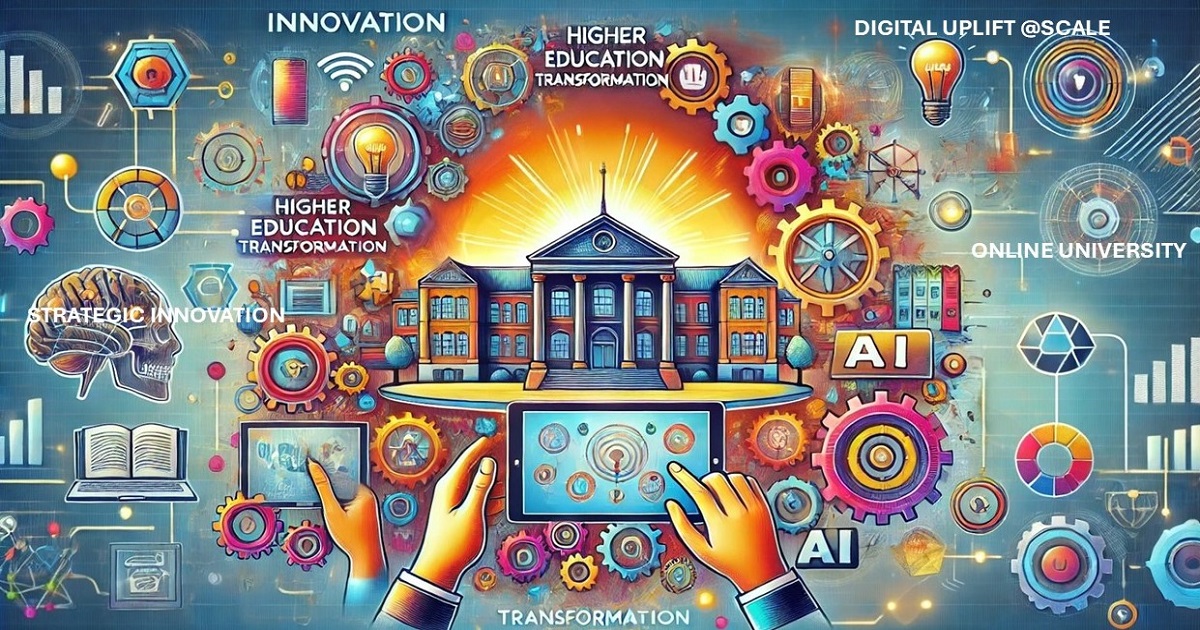Higher Education Development and Technological Innovation
A special issue of Education Sciences (ISSN 2227-7102). This special issue belongs to the section "Higher Education".
Deadline for manuscript submissions: closed (31 July 2025) | Viewed by 10659

Special Issue Editors
Interests: emerging technologies; digital transformation; innovation in higher education; online pedagogies; online learning transformation
Special Issue Information
Dear Colleagues,
Technological innovation has been informing and transforming higher education for over 30 years. While it is noted that the speed of this transformation increased during and after the COVID-19 pandemic, technology innovation is now at the centre of inclusive and accessible learning and teaching practice, particularly blended and online teaching.
Universities need to be strategic in their innovation practices to improve learning and teaching while enhancing the student experience for all (Kane et al., 2022). Introducing new and emerging educational technologies, trialling, failing and the subsequent widescale roll-out often sees innovation being adopted and adapted across the sector to meet the various needs of the student population in the context of each university.
At the same time, student needs, such as the preference and/or necessity to study online, have driven widespread adoption of certain educational technologies to both enable and enhance learning. However, when employing any technology, we must consider the importance of ensuring the best learning experience for all. Digital technologies and higher education transformation can assist with this, as has been shown throughout the long history in this area.
This Special Issue seeks to move innovation from the singular classroom or lone campus to enable others to learn from, adopt and adapt practices and research from where these innovations have been used. Submissions should report authentic, empirical research and include lessons learnt and best practice moving forward to inform the sector in a learning organisation approach (Senge 1990).
Technological innovation can help connect and prepare students for the workforce. It encourages online collaboration and transformation across learning and teaching in various ways and can support all types of learners across new and engaging environments. It can provide a safe place for students to learn about, use and engage with AI in order to be productive members of the workforce of the future.
Original research articles are invited for submission. The scope of the submission should be transformative innovation in the broader higher education sector. Research works including these topics are particularly invited and may include, but are not limited to, the following:
- Innovation in higher education;
- Higher education transformation;
- Online learning transformation/innovation;
- Digital uplift at scale;
- Gen AI innovation in learning and teaching;
- Innovation in teaching the use of AI;
- The implementation of emerging technologies at scale;
- Strategic innovation;
- Curriculum innovation;
- Sustainability in learning and teaching innovation;
- Technological innovation incubation and implementation;
- Online/virtual universities;
- Digital technology innovation;
- Technological innovation in assessment.
Yours faithfully,
Dr. Chris Campbell
Associate Professor Lynn Gribble
Guest Editors
Manuscript Submission Information
Manuscripts should be submitted online at www.mdpi.com by registering and logging in to this website. Once you are registered, click here to go to the submission form. Manuscripts can be submitted until the deadline. All submissions that pass pre-check are peer-reviewed. Accepted papers will be published continuously in the journal (as soon as accepted) and will be listed together on the special issue website. Research articles, review articles as well as short communications are invited. For planned papers, a title and short abstract (about 250 words) can be sent to the Editorial Office for assessment.
Submitted manuscripts should not have been published previously, nor be under consideration for publication elsewhere (except conference proceedings papers). All manuscripts are thoroughly refereed through a double-blind peer-review process. A guide for authors and other relevant information for submission of manuscripts is available on the Instructions for Authors page. Education Sciences is an international peer-reviewed open access monthly journal published by MDPI.
Please visit the Instructions for Authors page before submitting a manuscript. The Article Processing Charge (APC) for publication in this open access journal is 1800 CHF (Swiss Francs). Submitted papers should be well formatted and use good English. Authors may use MDPI's English editing service prior to publication or during author revisions.
Keywords
- innovation in higher education
- higher education transformation
- online learning transformation/innovation
- digital uplift at scale
- gen AI innovation in learning and teaching
- innovation in teaching the use of AI
- implementation of emerging technologies at scale
- strategic innovation
- curriculum innovation
- sustainability in learning and teaching innovation
- technological innovation incubation and implementation
- online/virtual universities
- digital technology innovation
- technological innovation in assessment
Benefits of Publishing in a Special Issue
- Ease of navigation: Grouping papers by topic helps scholars navigate broad scope journals more efficiently.
- Greater discoverability: Special Issues support the reach and impact of scientific research. Articles in Special Issues are more discoverable and cited more frequently.
- Expansion of research network: Special Issues facilitate connections among authors, fostering scientific collaborations.
- External promotion: Articles in Special Issues are often promoted through the journal's social media, increasing their visibility.
- Reprint: MDPI Books provides the opportunity to republish successful Special Issues in book format, both online and in print.
Further information on MDPI's Special Issue policies can be found here.






